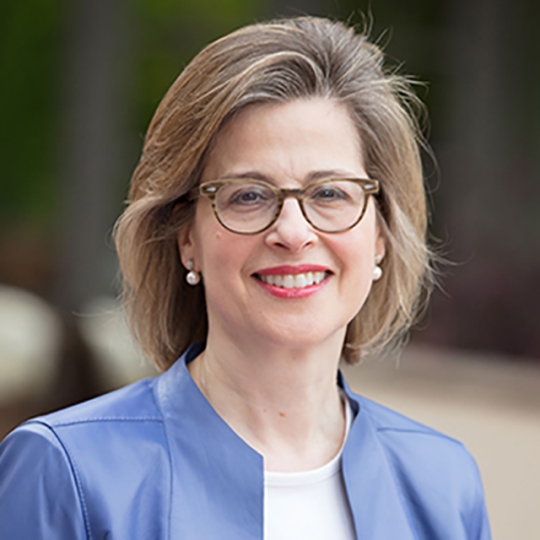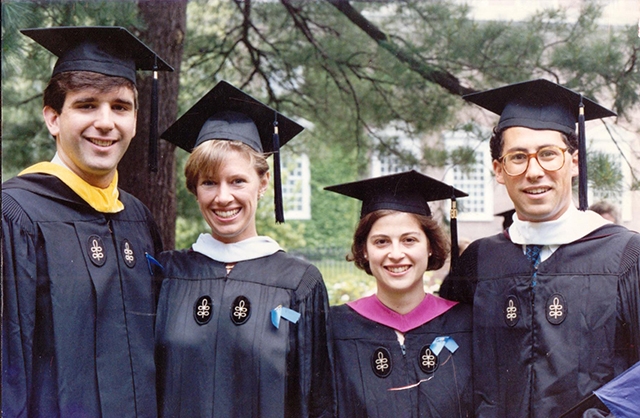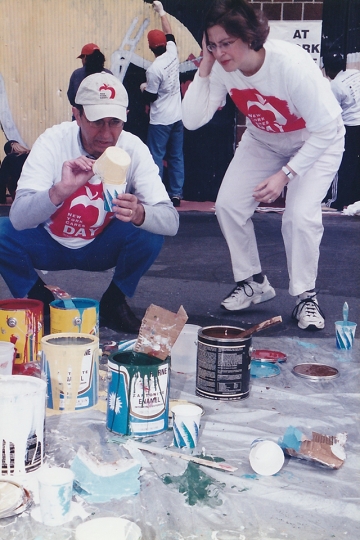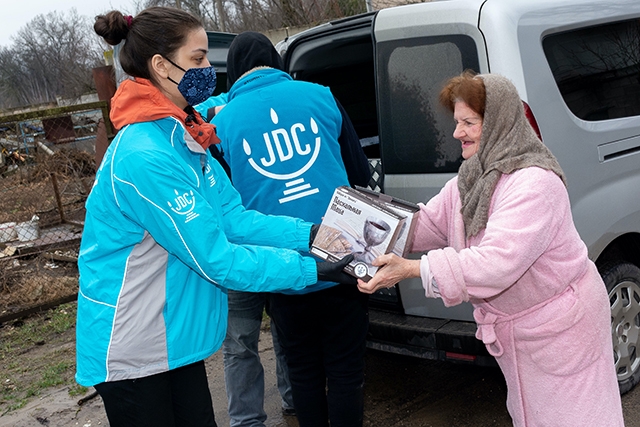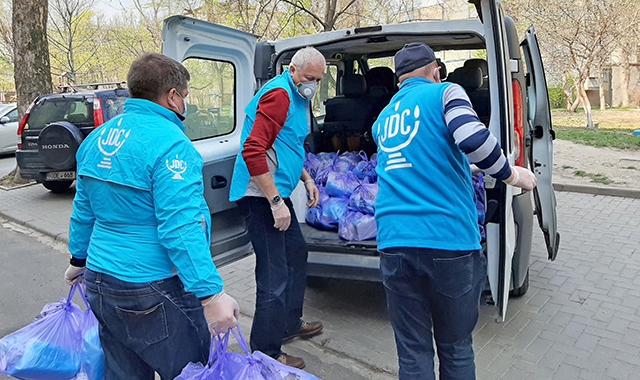For Ariel Zwang, A.B. ’85, MBA ’90, becoming CEO of the American Jewish Joint Distribution Committee (JDC) is a perfect marriage of her lifelong engagement in the Jewish community and her 30-year career in public service.
Zwang, who concentrated in applied math at the Harvard John A. Paulson School of Engineering and Applied Sciences (SEAS), now leads the world’s largest Jewish humanitarian organization, which operates in 70 countries providing critical aid and support for millions of Jews, fosters and empowers Jewish leaders, responds to global disasters, and develops innovative solutions for social problems in Israel and around the world.
In one sense, she considers her work a way to pay tribute to those who came before her; Zwang’s grandparents immigrated to the United States in the early part of the 20th century from Eastern Europe.
“As Jews, they were heavily discriminated against, but they were economic migrants,” she said. “They chose to leave behind everyone they loved, knowing they would never see them again, so that many decades later I could have the life that I’ve been able to lead.”
The service exhibited by her grandparents and parents—her father worked as a Hebrew day school principal and her mother was a social worker—inspired the career choices Zwang would make after she left Harvard.
As an undergraduate, her penchant for problem-solving led her to concentrate in applied math. She also studied psychology and worked on research projects at the intersection of those fields.
Zwang at her Harvard Business School graduation in 1990.
After graduation, Zwang jumped into the world of business, joining Morgan Stanley, earning an MBA from the Harvard Business School, and then taking a position at the Boston Consulting Group. But that role didn’t feel quite right.
“I started to explore what would be more meaningful to me, and I came back to that American Dream that I had benefited from,” she said. “The idea that Americans live in poverty for generations was very wrong to me. I believe that every human being should have a job that can support them and their loved ones and provide a decent place to live. For me, the squandering of human potential that happens when people don’t have access to the education or the opportunities that they deserve is the most heartbreaking part of it all.”
Her passion for affordable housing, access to education, and community economic development inspired a 180-degree turn in her career.
Zwang left finance behind and took on a role in the New York City Department of Education. She then became vice president of operations at the nonprofit Women’s Housing and Economic Development Corporation, a community development organization focused on providing affordable housing, educational resources, and economic opportunity to residents of the South Bronx.
Zwang at a New York Cares Cleanup with schools chancellor Joel Klein.
She then joined the volunteering organization New York Cares as Executive Director, where Zwang oversaw the deployment of more than 40,000 volunteers each year across all five boroughs. During her seven years at its helm, New York Cares doubled its programming.
She drew upon the leadership lessons she’d learned during her 12-year tenure as CEO of Safe Horizon, the largest nonprofit organization in the U.S. that serves victims of domestic violence, child abuse, human trafficking, and sexual assault. Zwang oversaw a massive expansion of the organization, which now serves more than a quarter of a million New Yorkers each year.
“Human services at any scale in our country are really delivered by nonprofits in partnership with government,” she said. “You don’t double in size just by providing good service. That is necessary, but not sufficient. You have to be a leading policy thinker. You have to be in conversation with government decision makers about what else is needed.”
Beyond those critically important relationships, leveraging innovation and the voices of those being served are also key to success, she said.
For instance, based on feedback from clients, the organization started an innovative program designed to keep families united—holding the abusive partner in a domestic violence situation accountable, but working to help the family remain together safely.
A local Jewish volunteer, trained by JDC, delivers matzah to an elderly Jew in Moldova as part of the recent Passover holiday.
Now at JDC, in a role she’s held since the start of 2021, Zwang is applying her problem-solving skills to a very different set of challenges.
“JDC is a large and dynamic organization, with more than 1,000 staff and a budget of over $300 million. We operate all over the world, and there are geopolitical factors in play that are often the reasons we are needed and also make our work challenging,” she said. “Like all venerable nonprofits, we work to balance honoring our history and maintaining our relevance.”
The work of JDC to support elderly Jews in the former Soviet Union remains a critical part of its mission, which speaks to Zwang on a deeply personal level.
She recalled a moving conversation with an 81-year-old woman living in Kiev, Ukraine. This woman, retired after a 46-year career, had recently lost her husband. She suffers from vision impairments and diabetes, which makes it difficult for her to walk, and her pension is not enough for her to buy medicine and food each month, so she struggles to get by.
“The only person who visits her is the homecare worker from JDC who is with her a few hours a week,” Zwang said. “Loneliness is often a predictor of a decline in health and social support services are needed. That’s where we step in. This work is not the new-new, but it is a sacred obligation.”
JDC aid workers deliver food packages and sanitation items to poor, Jewish seniors in Kishinev, Moldova during the pandemic.
While JDC provides essential aid for the elderly, it is doubling down on wide-reaching efforts to engage young people through cultural and educational programs and inspire a new generation of supporters. Zwang finds the enhanced focus on mobilizing younger generations particularly energizing.
And throughout the COVID-19 pandemic, JDC has shown tremendous ingenuity that will enable innovative future programs, she said. For instance, many of the older adults they serve in former Soviet countries lacked connected devices or the training to use them.
JDC has been able to provide both, so clients can stay connected with the organization and with others in their community, which will enable them to participate in future programs they otherwise wouldn’t have access to.
For Zwang, the opportunity to lead JDC through its century-old mission while finding innovative ways to serve those in need around the world is exciting and humbling.
“I am committed to JDC being here and available for the future miracles that it will need to bring about on behalf of the Jewish people,” she said. “The Jewish community over thousands of years has faced existential peril countless times, and in the last century JDC was there to mitigate that, during the Holocaust and at every other period. My goal is for us to be strong and present so that whatever befalls us, JDC will be there to respond.”
Press Contact
Adam Zewe | 617-496-5878 | azewe@seas.harvard.edu
